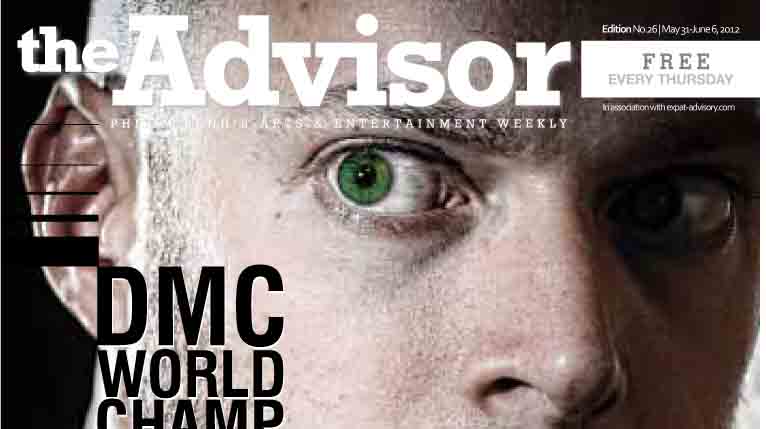The wings of the world’s fastest hummingbird beat at an astonishing 90 strokes per second, propelling this tiny creature through the air like a torpedo at speeds of up to 71 miles an hour. To the naked human eye, its wings oscillate so quickly they appear almost motionless in midair. Thousands of minuscule feathers blur together as one – an optical illusion that calls to mind the fingers of a world-class DJ.
Few, if any, turntablists boast wing muscles that make up 30% of their body weight, but the sheer manual dexterity required to join the rank of superstar DJ is not to be underestimated. Take Vajra (real name: Chris Karns), for example: the Denver-born lad once described by a Colorado newspaper as ‘an unassuming record clerk from Boulder’ is today the reigning DMC World DJ Champion – and is flying in to play in Phnom Penh later this month.
Launched by the Disco Mix Club in London in 1985, the DMC contest swiftly proved a breeding ground for turntable tricks and tricksters alike. Props, body tricks and scratching techniques burst forth from the decks as DJs used bicycles, billiard cues, American footballs and even a kitchen sink to coax never-before-heard sounds out of vinyl records. Run DMC, Public Enemy, Janet Jackson and James Brown queued around the block to join the finalists on the podium.
Locked in their studios for months at a time, these are the DJs for whom the turntable is a musical instrument, in much the same way a guitar is to Carlos Santana.Each competitor spends up to one whole year perfecting what will ultimately boil down to 360 seconds of flawless creativity.
“To be a DMC champ, you need to be dedicated and practice endlessly until you’ve perfected a six-minute set,” says DJ Illest, one of the owners of Pontoon night club in Phnom Penh. “I’ve always been amazed at how dedicated DMC DJs are and I have much respect for the DMC, which has helped DJs evolve technically. The DJs are judged on various criteria, such as technique; creativity; energy; crowd interaction, and body tricks. They perform basically an entire musical composition using just two decks and a mixer.
“The difference between a regular DJ and a DMC DJ – or one from any of those competitions – is that the guys who compete might be great technically, but they might not always make a great club DJ. You can be technically really good and do an amazing six-minute thing, but if you don’t feel the crowd, it’s just for show. That’s why it’s great to have Vajra here: he has the skills to be a party rocker as well.
“Vajra is one of those DJs who can combine showcasing his skills with a party-rocker set, meaning he’s going to rock the crowd all night. At some point he will do tricks, very briefly so people won’t even realise he’s doing it, or he’ll purposely make a break to get people’s attention, almost like a DMC thing. They do really amazing stuff.”
As he speaks, Illest’s hands are moving across the decks in his Tuol Kork home studio at what appears to be the speed of sound. Lithe fingers stop and start spinning vinyl, bending beats and surgically splicing compatible vocals. The cross-fader slams back and forth in a blur, blinking lights monitoring the music’s vital signs. Baby scratches, flares and chirps burst out of a wall of speakers, a mattress propped against one wall, presumably by way of soundproofing. Neatly grouped on top of an ageing PC is a small pile of discarded record needles – casualties on this sonic battlefield.
“I’m not a DMC champ, but I do what I can,” he hollers above the now thunderous hip-hop. “It was a DMC competition that first got me started about 15 years ago. It was very inspiring. I grew up in Paris, in the French hip-hop environment, so we had a lot of influence from the States, like Grandmaster Flash. It was thanks to DJ D Nasty’s radio show that I first heard scratching and thought, ‘This is different.’
“Scratching isn’t just making the record go back and forth and using a fader or cross-fader to make sounds, you can actually make a melody out of scratch, or it can be used as a percussion instrument. There are too many effects and scratches to name them all here, but basically scratching is like talking: the more scratches you know, the more vocabulary you have.
“First, world-class scratch DJs all have really quick hands. There are several training techniques. You can put a weight on your wrist, so you have something heavy on your hand while you practice. Then when you take it off to perform, your hand feels like it does after you’ve been lifting heavy weights at the gym and then pick up something light – it just floats. You can also use the same thing guitarists use to practice flexing their fingers faster and faster.
“Pontoon has brought DMC champs in the past – DJ Cash Money, the world champ in 1988; DJ ND, Belgian DMC champ in 2009, and DJ Asian Hawk, UK DMC champ – but we’ve never had the current champ before. DJ Vajra is known for his amazing DJ skills: scratching; beat juggling; recreating beats with two copies of the same record; doing scratching tricks. We expect his performance to showcase his technical skills and at the same time rock the crowd.
“As for the local scene, I hope to one day see a DMC competition here in Cambodia and I hope that DJ Gang, who I taught, and DJ Blue of the CP5 DJ crew will represent this country. Talent is everywhere: Gang and Blue are still very young and have the right DJ attitude. They’ve found their own identity.”
WHO: DJ Vajra
WHAT: Reigning DMC World DJ Champion
WHERE: Pontoon, St. 172
WHEN: 11pm June 15
WHY: See under ‘What’
